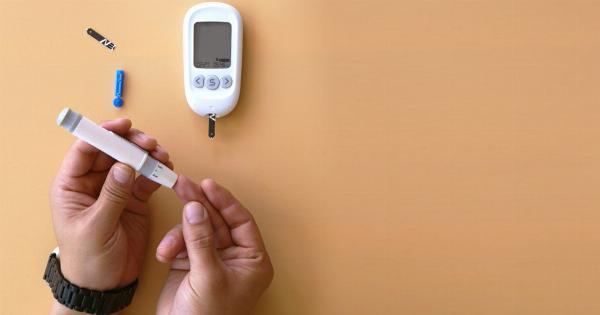Electrolyte imbalance refers to a condition where the electrolyte levels in the body are either too high or too low.
Electrolytes are minerals that carry an electric charge and are essential for various bodily functions, including nerve and muscle function, maintaining fluid balance, and regulating blood pH levels. Maintaining proper electrolyte balance is crucial for overall health and well-being. This article discusses the importance of managing electrolyte imbalance and highlights the significance of maintaining a proper balance.
The Role of Electrolytes in the Body
Electrolytes, such as sodium, potassium, calcium, magnesium, chloride, and phosphate, play a vital role in maintaining the body’s balance and functioning efficiently. Each electrolyte has specific functions:.
Sodium
Sodium helps maintain the body’s fluid balance, aids in nerve function, and supports proper muscle contraction and relaxation. It also plays a role in regulating blood pressure.
Potassium
Potassium is essential for maintaining proper heart function, assisting in muscle contractions, and regulating fluid balance within cells. It also helps transmit nerve impulses.
Calcium
Calcium is crucial for maintaining strong bones and teeth. It also supports proper muscle function, aids in blood clotting, and promotes nerve transmission.
Magnesium
Magnesium is involved in more than 300 biochemical reactions in the body. It helps regulate muscle and nerve function, supports healthy immune system function, and promotes cardiovascular health.
Chloride
Chloride works closely with sodium to maintain fluid balance in the body. It aids in digestion, helps produce stomach acid, and plays a role in nerve function.
Phosphate
Phosphate is essential for bone and teeth formation, energy production, and regulating acid-base balance in the body.
Causes of Electrolyte Imbalance
Electrolyte imbalance can occur due to various factors, including:.
1. Dehydration
When the body loses fluids and electrolytes through excessive sweating, vomiting, diarrhea, or inadequate fluid intake, it can lead to electrolyte imbalances.
2. Kidney Disorders
Conditions that affect kidney function, such as chronic kidney disease or kidney failure, can disrupt the body’s ability to regulate electrolyte levels, leading to imbalances.
3. Medications
Certain medications, such as diuretics, laxatives, antacids, and chemotherapy drugs, can interfere with electrolyte balance.
4. Hormonal Imbalances
Hormonal disorders, such as those affecting the adrenal glands, can disrupt the body’s electrolyte balance.
5. Chronic Illnesses
Chronic conditions like heart disease, liver disease, diabetes, and gastrointestinal disorders can contribute to electrolyte imbalances.
Signs and Symptoms of Electrolyte Imbalance
The signs and symptoms of electrolyte imbalance may vary depending on the specific electrolyte affected and whether it is high or low. Common symptoms include:.
1. Muscle cramps and weakness
An electrolyte imbalance can cause muscle cramps, weakness, and even involuntary muscle contractions.
2. Fatigue and lethargy
When electrolyte levels are imbalanced, it can lead to fatigue, weakness, and a general lack of energy.
3. Irregular heart rate
Electrolyte imbalances can disrupt the normal electrical signals in the heart, resulting in palpitations, irregular heart rate, or even arrhythmias.
4. Nausea and vomiting
An imbalance in electrolytes can cause gastrointestinal disturbances, including nausea, vomiting, and digestive issues.
5. Dizziness and confusion
Electrolyte imbalances can affect brain function, leading to symptoms like dizziness, confusion, difficulty concentrating, and even changes in mood.
Managing Electrolyte Imbalance
Proper management of electrolyte imbalance involves identifying and addressing the underlying cause, restoring electrolyte balance, and preventing future imbalances. The treatment options may include:.
1. Fluid Replacement
For mild dehydration or electrolyte imbalance caused by excessive sweating or fluid loss, drinking water or oral rehydration solutions can help restore balance.
2. Medication Adjustment
If medications are contributing to electrolyte imbalance, the healthcare provider may adjust the dosage or prescribe alternatives to mitigate the effects.
3. Dietary Changes
Adopting a balanced diet rich in electrolyte-containing foods, such as fruits, vegetables, nuts, seeds, and lean proteins, can help maintain proper electrolyte levels.
4. Supplementation
In severe cases of electrolyte imbalance, healthcare professionals may recommend specific electrolyte supplements to restore balance.
5. Treating Underlying Conditions
Managing chronic illnesses or hormonal disorders that contribute to electrolyte imbalance is essential for long-term management.
Preventing Electrolyte Imbalances
To maintain proper electrolyte balance and prevent imbalances, consider the following measures:.
1. Stay Hydrated
Ensure adequate fluid intake, especially during hot weather or intense physical activity, to prevent dehydration and subsequent electrolyte imbalances.
2. Eat a Balanced Diet
Consume a well-rounded diet that includes a variety of fruits, vegetables, whole grains, lean proteins, and sources of healthy fats to obtain essential electrolytes.
3. Limit Sodium Intake
Excessive sodium intake can disrupt the balance of other electrolytes. Avoid processed foods, fast food, and excessive salt consumption.
4. Exercise Moderately
Engage in regular physical activity, but be cautious of excessive sweating without replenishing fluids and electrolytes.
5. Monitor Medications
Understand the potential side effects of medications and discuss them with healthcare professionals. Regularly review medication usage and consider alternatives if electrolyte imbalances are a concern.
Conclusion
Maintaining a proper electrolyte balance is crucial for overall health and well-being. Electrolyte imbalances can disrupt numerous bodily functions and lead to various symptoms, ranging from muscle cramps to irregular heart rate.
Managing electrolyte imbalances involves identifying and addressing the underlying cause, restoring balance through fluid replacement or supplementation, and preventing future imbalances through proper hydration, a balanced diet, and regular physical activity. By prioritizing electrolyte balance, individuals can optimize their health and prevent complications associated with electrolyte imbalances.































